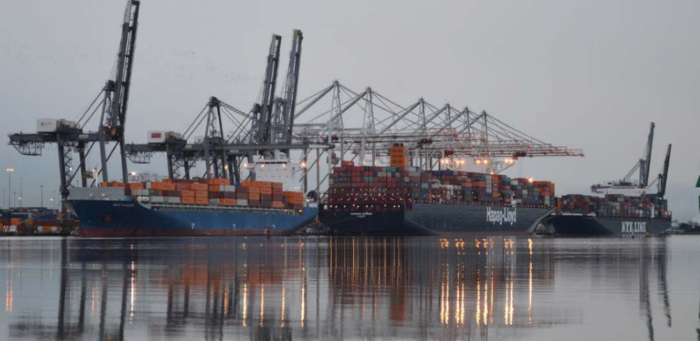Ports in developing countries must be managed efficiently using modern methods to support international trade and boost local economies, UNCTAD Deputy-Secretary General Isabelle Durand said at a meeting under UNCTAD’s TrainForTrade port management programme in Geneva.
The challenges of ports in the global South match their importance in the global economy, she said. Challenges that these ports have to face include managing the goods they receive on time, the effects of climate change, rising temperatures, rising waters and of the emergence of extreme weather phenomena. Other hazards include economic and financial instability and threats linked to cybercrime.
With 59% of global exports and 64% of global imports passing through a developing country port, maritime transport and port infrastructure remain at the heart of economic and social development in developing countries
With a well-organized port sector, trade volumes increase as transport costs decrease, economic competitiveness is boosted, and jobs are created – but modern port management requires that this is done while respecting social equity, preserving resources and respecting the environment. And as regulations evolve, the complexity of managing ports increases.
Building bridges
TrainForTrade helps bring efficiencies to developing country ports by encouraging trainees to look anew at their workplace and devise innovative solutions.
For instance, Togo port manager Koessanh Komlan Amatchoutchoui improved crew well-being and efficiency by building a footbridge in the port of Lomé which helps sailors to disembark while their boats are docking.
In another case, TrainForTrade graduates installed an electronic system for tracking outages on the Intranet network of the port of Dakar, Senegal – more than 21 kilometers of cables and optical fibers. This made it possible to reduce the time it took to identify frequent outages from one day to one hour, increasing port productivity.
In Benin, a new system for assigning dockworkers has proved highly profitable thanks to an optical reading of fingerprints at the entrance to the Port of Cotonou. This resulted in the better filtering of accredited employees, and a more judicious distribution of dockworkers at loading and unloading docks.
The TrainForTrade Port Management Programme also supports port communities in developing countries through networks of public, private, national and international institutions.
Training of trainers
The UNCTAD programme focuses on the development of human resources and fills this training gap.
Training is not only structured around exchanges of experience and best practice between countries of the global North and the global South, but also, thanks to the existence of a solid global network, between countries in Asia, Africa and the Americas.
UNCTAD also ensures that the impact of its programme is multiplied through the training of trainers, guaranteeing that its effect is felt not just in the same port, but also in port facilities of other developing countries.
In addition, with information and communication technologies, training can be provided at a distance, allowing a larger number of people to take part at low cost. UNCTAD issues an internationally recognized high-level “port certificate”.
Trade, upgrade
UNCTAD has been offering the TrainForTrade training programme to developing countries wishing to upgrade their port infrastructure for greater efficiency and performance for more than 20 years.
Representatives of the member countries of the French-speaking port network – Benin, Cameroon, Ivory Coast, Gabon, Guinea, Haiti, Mauritania, Madagascar, Senegal and Togo – have gathered to review training activities in modern port management following a previous meeting held in Port-au-Prince, Haiti, in April 2017.































































